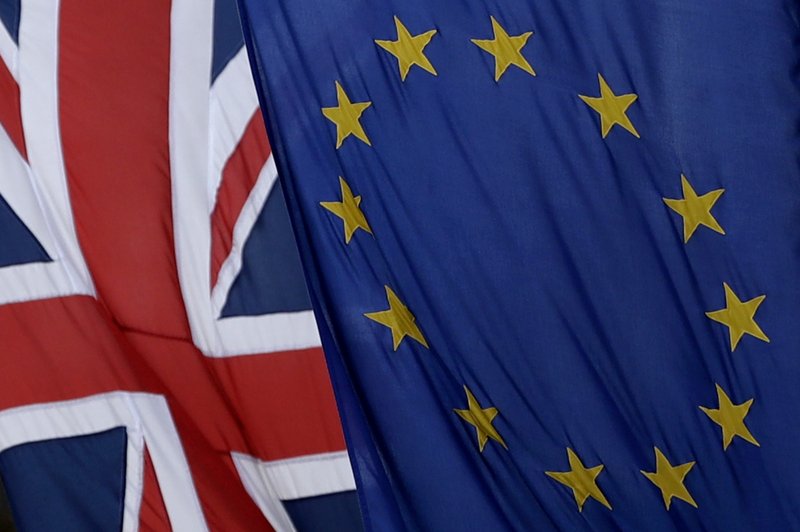LONDON -- British Prime Minister Theresa May on Thursday rejected a call for a referendum on Scottish independence before Britain leaves the European Union -- a move condemned as a "democratic outrage" by Scotland's nationalist leader.
May and Scottish First Minister Nicola Sturgeon both dug in their heels in a showdown that could complicate Britain's path out of the EU and threaten the future of the United Kingdom.
May said "now is not the time" to reopen Scotland's independence debate, though she did not rule out a referendum in the future. Britain is to begin the two-year exit process from the 28-nation EU by the end of this month.
The United Kingdom is made up of England, Scotland, Wales and Northern Ireland. The U.K. as a whole decided in a June 23 referendum to leave the EU, but Scots in that ballot voted 62 percent to 38 percent to remain.
Sturgeon announced earlier this week that she will seek a referendum on Scottish independence to be held between the fall of 2018 and the spring of 2019, so Scottish voters can decide whether to leave the EU with the rest of the U.K. or go it alone.
The Conservative-led British government, however, must agree to a legally binding referendum, and May said "now is not the time."
"All our energies should be focused on our negotiations with the European Union," May said, adding that holding a Scotland referendum while EU exit talks are still underway would "make it more difficult for us to get the right deal for Scotland and the right deal for the U.K."
The British government's Scotland minister, David Mundell, said May's administration "will not be entering into discussions or negotiations" about a new referendum on Scottish independence.
But Sturgeon, undeterred, plans to ask the Scottish Parliament next week to start the process of seeking a new referendum.
She said it would be a "democratic outrage" for the British government to stop the people of Scotland "having a choice over their future."
"It is for the Scottish parliament -- not Downing Street -- to determine the timing of a referendum, and the decision of the Scottish parliament must be respected," she said.
She said "having sunk the ship with Brexit," the British government was "trying to puncture Scotland's lifeboats as well." Brexit refers to the British exit from the EU.
May's office said the prime minister hopes the Scottish government will back away from its plans for a referendum within two years. May has not ruled out a later independence vote -- but her stance could boost support for independence among the Scots.
Still, Sturgeon's Scottish National Party does not hold an outright majority in the Scottish legislature, and her plan will face opposition. Scottish Conservative leader Ruth Davidson, whose party has the second-largest bloc of seats, said the Tories would "reject conclusively the timetable for a referendum set out by the Scottish government."
Davidson said voting on independence without knowing how Britain was faring outside the EU would mean that "on the most important decision we can make, we would be voting blind."
Scottish voters rejected independence by a margin of 55 percent to 45 percent in a 2014 referendum that was billed as a once-in-a-generation vote. But Sturgeon said the U.K.'s decision to leave the EU has changed everything.
Also Thursday, the U.K. exit from the EU moved closer when a bill authorizing the British government to begin divorce proceedings with the bloc became law. House of Commons Speaker John Bercow announced that the European Union (Notification of Withdrawal) Act had received the assent of Queen Elizabeth II.
May is now free to invoke Article 50 of the EU's key treaty, triggering two years of exit negotiations. She says she will do that by March 31.
A Section on 03/17/2017

